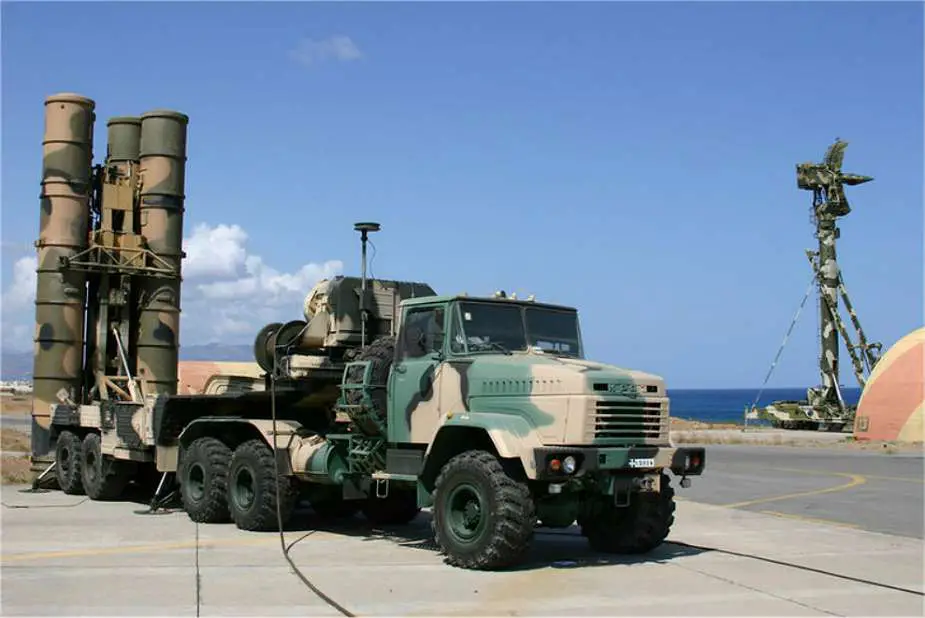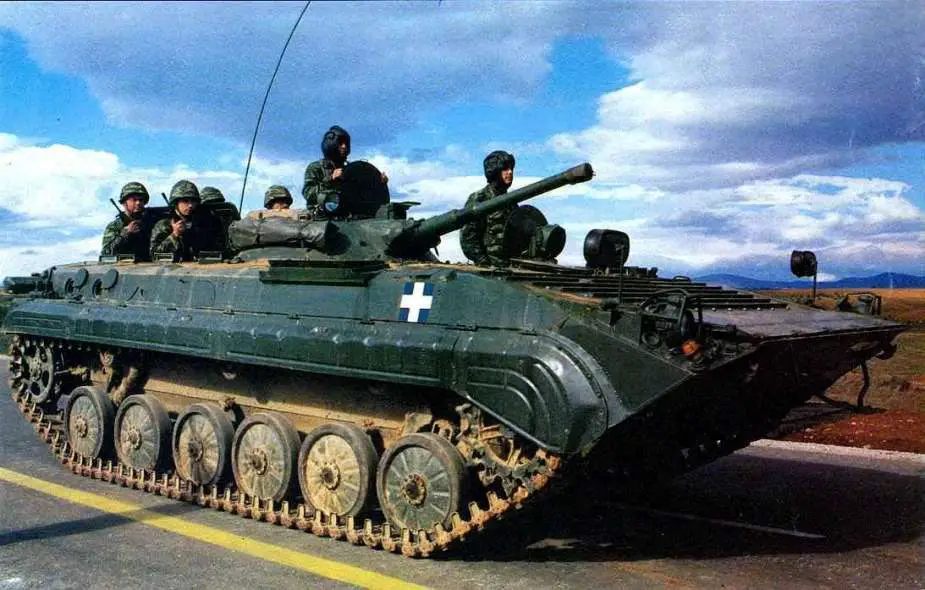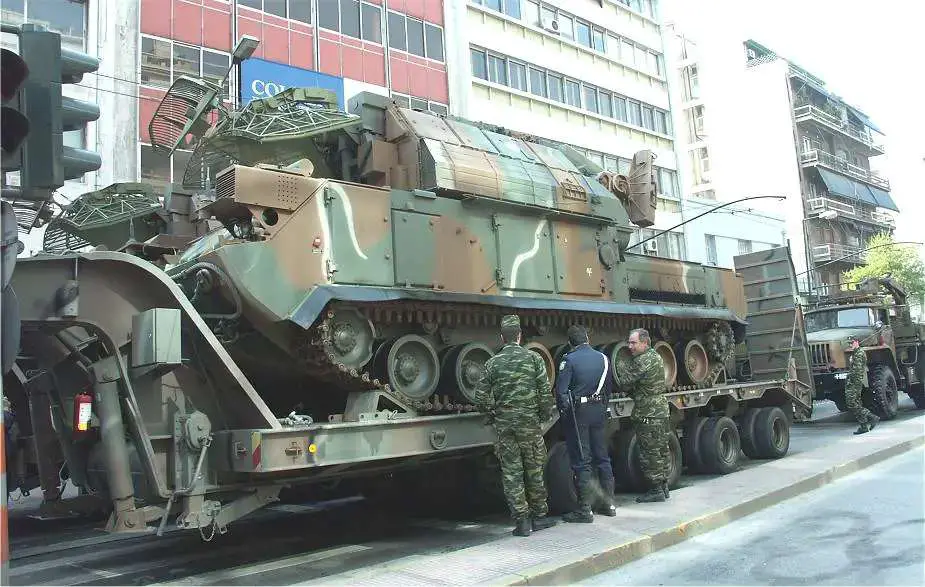Breaking news
Breaking News: Greece Supports Ukraine with Outdated Military Weapons Following Major US Defense Deal.
Athens, Greece, January 28, 2024 - In a significant development amidst the ongoing conflict in Ukraine, the Greek government has announced its decision to supply Ukraine with outdated weapons systems that are no longer in active service with the Greek armed forces. This move aligns with Greece's broader strategy of modernizing its military capabilities while supporting Ukraine in its defense efforts.
Follow Army Recognition on Google News at this link

Greek armed forces are equipped with Russian-made S-300 PMU1 air defense missile systems that could be delivered to Ukraine. (Picture source Hellenic Air Force)
The decision comes in the wake of the United States approving a substantial $8.6 billion sale of F-35 fighter jets to Greece, a deal that marks a major upgrade to the Hellenic Air Force's capabilities. As part of this defense collaboration, the U.S. has also offered an additional $200 million in military aid to Greece, contingent on the provision of military support to Ukraine.
Greece's contribution to Ukraine's military aid includes a variety of older weapons systems. While the specifics of the equipment have not been fully disclosed, it is understood that these systems are no longer considered crucial to Greece's current defense posture. This transfer represents Greece's commitment to supporting Ukraine while continuing to modernize and strengthen its military forces.
The move also reflects Greece's strategic positioning within the broader NATO alliance and its commitment to supporting fellow democracies in times of conflict. By providing aid to Ukraine, Greece stands in solidarity with a nation facing aggression, while simultaneously advancing its defense modernization through the acquisition of advanced F-35 fighter jets.
This development underscores the complex dynamics of international military aid and defense procurement. Greece's balancing act between aiding Ukraine, upgrading its military arsenal, and maintaining its role as a key NATO member highlights the intricate web of diplomacy, defense strategy, and international solidarity in the face of global conflicts.

Greece has already provided Ukraine with 40 BMP-1 Russian-made Infantry Fighting Vehicles.
Since the beginning of the war in Ukraine, Greece has already supplied Ukrainian armed forces with a wide range of combat vehicles and weapons including 40 BMP-1A1 infantry fighting vehicles from Greek stocks, starting in October 2022. This was part of a 'Ringtausch' program where Greece received 40 Marder IFVs (Infantry Fighting Vehicles) in exchange. Additionally, there's an ongoing plan to deliver more BMP-1A1 IFVs.
In the realm of anti-tank weaponry, Greece has supplied Ukraine with 815 RPG-18s, a process that began in February 2022. Complementing these deliveries, Greece has also provided 20,000 Kalashnikov rifles during the same period.
Ammunition support from Greece includes an unspecified number of 122mm rocket artillery rounds for BM-21 and RM-70 MRLs, which started arriving in Ukraine in February 2022. Future deliveries are set to include artillery ammunition, small arms ammunition, and the procurement of 155mm ammunition through the European Defense Agency.
Beyond equipment, Greece is also contributing to the training of Ukrainian military personnel. This includes training for Ukrainian pilots on F-16 jet fighters slated for 2023/2024, the deployment of Hellenic Army soldiers to train Ukrainian Special Forces in 2022/2023, and similar training for Ukrainian troops on the Leopard 2 MBT during the same period.
Lastly, Greece's support extends to medical aid, with plans for the rehabilitation of wounded Ukrainian soldiers in Greece, scheduled for 2023. This comprehensive aid package underscores Greece's commitment to supporting Ukraine's defense capabilities and overall stability in the region.

Greek armed forces are equipped with Russian-made TOR-M1 air defense missile systems. (Picture source Army Recognition Group)
Greece's acquisition of Russian military weapons over the years can be attributed to a combination of historical, cultural, and geopolitical factors. Historically, Greece and Russia have shared a close bond, largely due to their shared Orthodox Christian heritage. This cultural and religious connection has fostered a sense of affinity between the two nations, often transcending the purely political or economic realms.
The Greek armed forces, over the years, have incorporated a range of Russian-made weapons into their arsenal, reflecting their diverse defense procurement strategy. One of the most significant Russian systems in service with Greece is the S-300 PMU1 air defense system. Acquired in the late 1990s, this long-range surface-to-air missile system is known for its capability to track and strike multiple aerial targets simultaneously, providing a robust defense against aircraft and missile threats.
Additionally, Greece has in its possession a variety of Russian-made anti-aircraft systems and portable air defense systems. These include the TOR-M1 and SA-8 Gecko air defense missile systems designed for engaging airplanes, helicopters, cruise missiles, precision-guided munitions, unmanned aerial vehicles, and short-range ballistic threats. It is particularly noted for its ability to function effectively in electronic countermeasure environments.
The Greek military has also employed Russian anti-tank weapons, such as the Kornet and Konkurs anti-tank missile systems. These systems are designed to engage a variety of ground targets, including tanks and other armored vehicles, fortifications, and low-flying aerial targets.
Russian weapons in the Greek armed forces, if delivered to Ukraine, offer several advantages. Firstly, their familiarity and widespread use in Eastern European and former Soviet bloc countries mean Ukrainian forces would likely require minimal training to operate them effectively. This includes systems like the S-300 air defense, known for its capability to engage multiple aerial targets at long ranges, which could significantly bolster Ukraine's air defense capabilities. Additionally, the anti-tank and portable air defense systems such as the Kornet and Konkurs, and TOR-M1, are highly effective against armored vehicles, helicopters, and low-flying threats. These systems could provide a substantial boost to Ukraine's defensive operations, particularly in countering advanced armored and aerial threats.
Defense News January 2024























